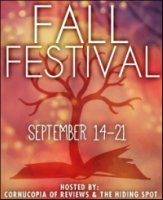Yes, you read that correctly. How, do you ask, can someone who spends every spare minute of their time poring over words on a page, sometimes more than once, twice, or three times, be someone who leads others? It’s simple, really. Reading gives us imagination. Immersing ourselves in stories in which an orphan with a scar on his forehead discovers he is, in fact, a wizard with a destiny, the Chosen One, rescued and empowered by his mother’s sacrificial love, in which four siblings enter a magical world through a wardrobe and meet a lion and a witch, in which a girl is born into a city where a person’s faction comes before blood and everyone’s minds are supposed to work a certain way; in which a boy with dyslexia, ADHD, a satyr for a best friend and a sword-pen embarks on numerous quests and defies the gods of Olympus, and in which a girl witnesses a demon’s death while in a nightclub with her nerdy best friend strips away the barriers of impossibility that we face daily. While we go about our daily routines—the one’s in which we must return to real life—we take with us a valuable tool: a reader’s eye.
What would this building look like in an apocalypse?
What if this garden were a doorway to a faerie world hidden right under our noses?
What would the world look like if love were treated as a deadly disease?
Would my mind be able to overcome a serum-induced simulation?
I know, I know, you’re still probably wondering how any of this makes us leaders. Creativity, flexibility, and the ability to draw from the experiences of others all enhance our skills and decision-making. While we may not have attended Hogwarts, fought demons, or faced Dauntless initiation in our endless days of school, work, and bill-paying, we have experienced—through a character—the gain and loss of love, the importance of purpose, the thrill of adventure, the beauty of self-sacrifice, the value of friendship, and many others. This isn’t to say that those who prefer sitcoms, movies, live theater, or reality itself are not as good as readers, but much of TV and movies gives you everything. You can’t internalize a TV show like you can a character or a story or a world inside of a book. We take the words and descriptions that the author gives us and we put the finishing touches on what we see in our mind’s eye. We interpret literature according to our life’s experiences, successes, and failures; we make it our own.
Just some thoughts. I’m new at this, okay? 🙂







Recent Comments